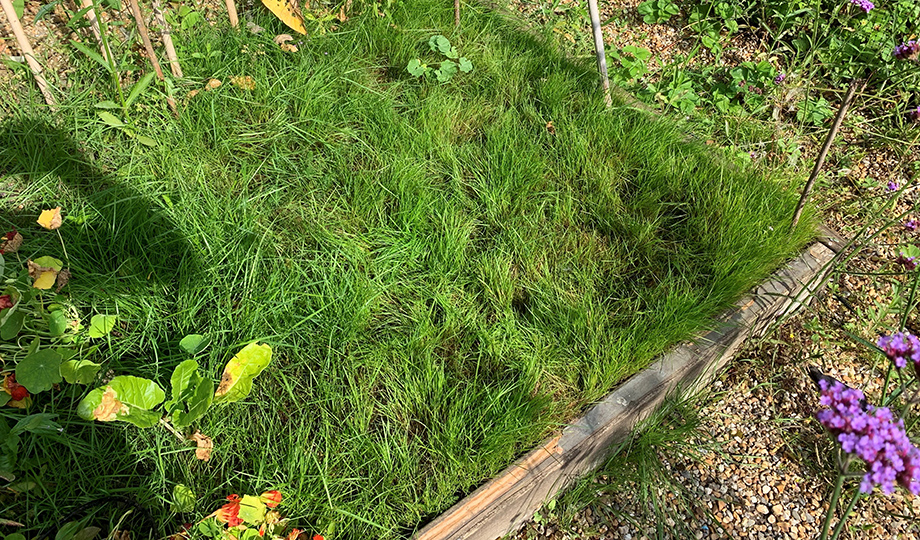Lorna’s Seeds, the innovative new scheme which naturally extracts and upcycles heavy metals from garden soil, has entered the next stage of its development, thanks to the generous support of green-fingered citizen scientists.
Over 200 people responded to calls to take part in a trial for Lorna’s Seeds, which tasked gardeners with planting a bag of seeds in their garden, harvesting them after six weeks and then returning the clippings for ‘mining’ at Brunel University London’s Experimental Techniques Centre (ETC).
The free seed packs – which were funded by Brunel – contained a variety of common but good-looking plants, including yarrow, mustard, oxeye daisies and ‘Baby Blue Eyes,’ which turn a vibrant shade of blue when high concentrations of aluminium are present.
“Reaching 200 participants was a very exciting milestone for us as it showed that people are really interested in healthy soils,” said Dr Lorna Anguilano, a senior research fellow at the ETC and the brains behind Lorna’s Seeds. “We had some very nice exchanges with participants really wanting to understand what their soil looked like and how it could be cleaned and improved using our seeds. It was really pleasant to see that so many people shared our interest and passion.”

200 people are now taking part in a trial for Lorna's Seeds
With the trial now full and the researchers busy analysing the results, Lorna’s Seeds will now enter the next stage of its development and be ‘spun off’ the university to be developed as a commercial product, readily available for all gardeners.
In order to fully realise the potential of Lorna’s Seeds though, the team must first develop an effective process of extracting and upcycling the metals that are being extracted from gardens, which can include common metals such as lead, zinc, titanium, manganese and copper, as well as trace amounts of rarer, more valuable metals. It is hoped that the extracted metal, many of which are currently mined under terrible conditions, can be reused in industry, for instance as catalysts.
To help raise funds and develop a community of enthusiastic supports of the Lorna’s Seeds, the team have now launched a crowdfunding campaign, which they hope will help them raise £5000 to continue their research and develop a sustainable, long-term business model.
As is common with crowdfunding campaigns, those donating will receive a reward, with a small £10 donation getting you a packed of seeds and a booklet about the project, whilst a larger donation of £75 will be rewarded with the seeds and booklet, as well as analysis of the soil and clippings and an invite to the ETC in Uxbridge to meet Lorna and explore the facilities.
“Since our start-up was just launched, we need a bit of support to make her stand on her feet and start walking,” said Dr Anguilano, who refers to newly founded company as ‘her’ due to the all-female team behind it.
“We thought a crowdfunding campaign would give us a good opportunity to start a community of individuals interested in this type of research and service, and to understand how it can really benefit gardeners and allotmenteers.
“As a researcher, crowdfunding is a way of challenging your own results and seeing how they can be improved upon to become real products that can make a real change.
To find out more about Lorna’s Seeds and to be part of her exciting journey, please visit phyona.co.uk
Reported by:
Tim Pilgrim,
Media Relations
+44 (0)1895 268965
tim.pilgrim@brunel.ac.uk